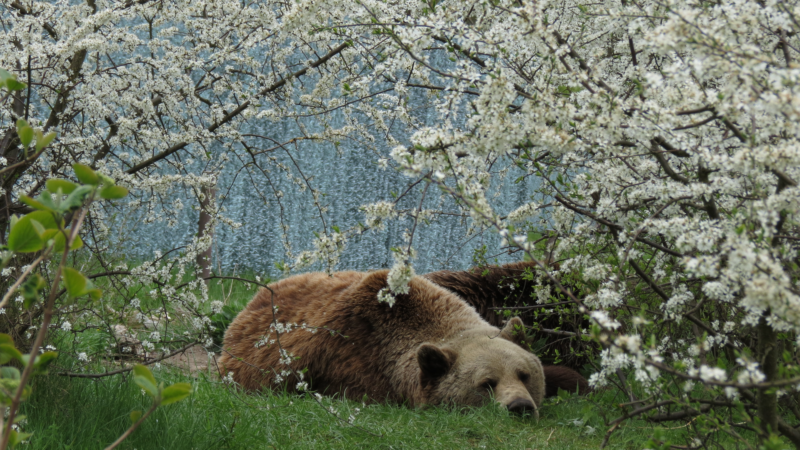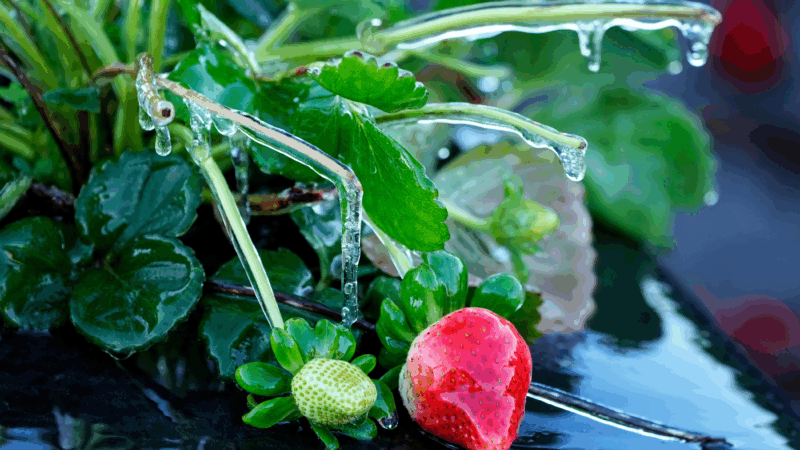March Madness is underway. So is March Napness, the tournament for hibernating bears
Bears across Europe are competing, not for food or mates, but for who can sleep the longest.
Inspired by March Madness, March Napness is an annual bracket-style tournament where hibernating bears “compete” to see who will remain in hibernation the longest. It is run by Four Paws, a global animal welfare organization.
“The sleepiest bear wins,” said Claire LaFrance, head of communications for Four Paws. “The bear that remains sleeping the longest is crowned king or queen for that year.”
According to LaFrance, Four Paws has over 135 rescued brown bears in seven sanctuaries around the globe. Six of them are in Europe, where the competition is held.
The competitors are European brown bears. Most of them have been rescued from inappropriate or inadequate keeping conditions and can’t be returned to the wild.
This year, 23 bears started the competition. LaFrance said the bears at Four Paws sanctuaries typically start hibernating between October and November.


“Some bears prefer to make their own dens, and some bears prefer that we provide them with the dens so they do none of the work. They’re just like, ‘thank you for my bed and goodnight.'” said LaFrance.
The bears can sleep deep into April. So far, more than half of the bears have woken up. In order for them to be disqualified, they need to be awake for five consecutive days.
“When animals, especially bears, hibernate, they can actually wake up from time to time,” said LaFrance. “They can wake up, they can get out of their den, and they can walk around. Maybe have a snack, and then go back to sleep.”
Bears don’t wake up consistently at the same time every year, so the results of this competition aren’t easy to predict.
LaFrance said the biggest surprise this year came in week one from one of last year’s finalists. At their bear sanctuary in Ukraine, a bear named Tyson woke up in the early phases of the competition.
“And [now] he’s just snacking on apples and totally living his best life,” said LaFrance.
Four Paws hopes March Napness inspires people to learn about bears and ways to protect them. LaFrance says March Napness shows how captive bears can begin hibernating at any age, once they’re given the proper conditions and care.
Beyond raising awareness about bears and their habitats, Four Paws hopes people following the tournament learn a thing or two from the sleepy competitors.
“I think they can really help bring back the movement that sleep is self-care and there’s no harm in taking a little nap when you need it,” LaFrance said.
You can keep track of the competition on the Four Paws website and its social media pages.
Lisa Thomson edited the audio version of the story. Obed Manuel edited the digital version.
High-speed trains collide after one derails in southern Spain, killing at least 21
The crash happened in Spain's Andalusia province. Officials fear the death toll may rise.
United Nations leaders bemoan global turmoil as the General Assembly turns 80
On Saturday, the UNGA celebrated its 80th birthday in London. Speakers including U.N. Secretary-General António Guterres addressed global uncertainty during the second term of President Trump.
Parts of Florida receive rare snowfall as freezing temperatures linger
Snow has fallen in Florida for the second year in a row.
European leaders warn Trump’s Greenland tariffs threaten ‘dangerous downward spiral’
In a joint statement, leaders of eight countries said they stand in "full solidarity" with Denmark and Greenland. Denmark's Prime Minister Mette Frederiksen added: "Europe will not be blackmailed."
Syrian government announces a ceasefire with the Kurdish-led Syrian Democratic Forces
Syria's new leaders, since toppling Bashar Assad in December 2024, have struggled to assert their full authority over the war-torn country.
U.S. military troops on standby for possible deployment to Minnesota
The move comes after President Trump again threatened to invoke the Insurrection Act to control ongoing protests over the immigration enforcement surge in Minneapolis.







